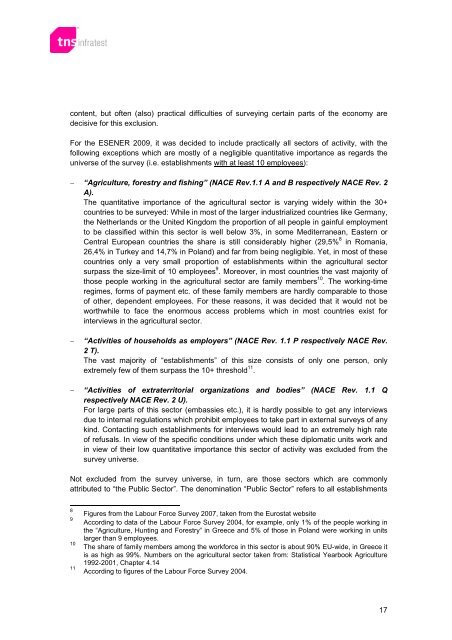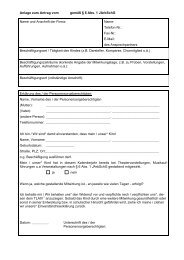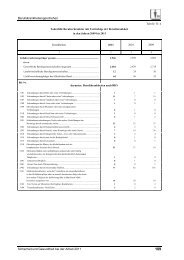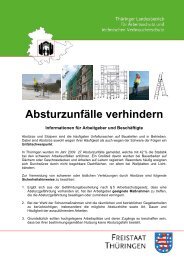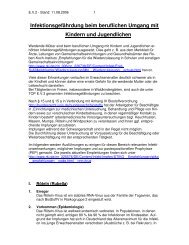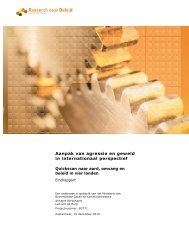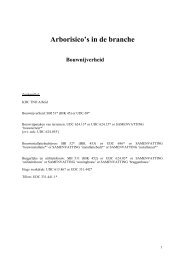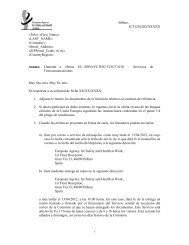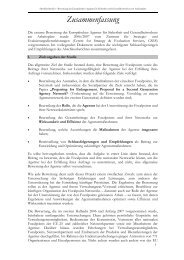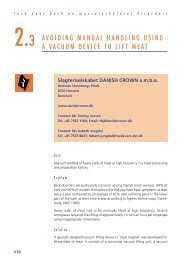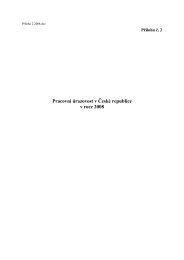ESENER-PSR 2009 - European Agency for Safety and Health at Work
ESENER-PSR 2009 - European Agency for Safety and Health at Work
ESENER-PSR 2009 - European Agency for Safety and Health at Work
You also want an ePaper? Increase the reach of your titles
YUMPU automatically turns print PDFs into web optimized ePapers that Google loves.
content, but often (also) practical difficulties of surveying certain parts of the economy are<br />
decisive <strong>for</strong> this exclusion.<br />
For the <strong>ESENER</strong> <strong>2009</strong>, it was decided to include practically all sectors of activity, with the<br />
following exceptions which are mostly of a negligible quantit<strong>at</strong>ive importance as regards the<br />
universe of the survey (i.e. establishments with <strong>at</strong> least 10 employees):<br />
“Agriculture, <strong>for</strong>estry <strong>and</strong> fishing” (NACE Rev.1.1 A <strong>and</strong> B respectively NACE Rev. 2<br />
A).<br />
The quantit<strong>at</strong>ive importance of the agricultural sector is varying widely within the 30+<br />
countries to be surveyed: While in most of the larger industrialized countries like Germany,<br />
the Netherl<strong>and</strong>s or the United Kingdom the proportion of all people in gainful employment<br />
to be classified within this sector is well below 3%, in some Mediterranean, Eastern or<br />
Central <strong>European</strong> countries the share is still considerably higher (29,5% 8 in Romania,<br />
26,4% in Turkey <strong>and</strong> 14,7% in Pol<strong>and</strong>) <strong>and</strong> far from being negligible. Yet, in most of these<br />
countries only a very small proportion of establishments within the agricultural sector<br />
surpass the size-limit of 10 employees 9 . Moreover, in most countries the vast majority of<br />
those people working in the agricultural sector are family members 10 . The working-time<br />
regimes, <strong>for</strong>ms of payment etc. of these family members are hardly comparable to those<br />
of other, dependent employees. For these reasons, it was decided th<strong>at</strong> it would not be<br />
worthwhile to face the enormous access problems which in most countries exist <strong>for</strong><br />
interviews in the agricultural sector.<br />
“Activities of households as employers” (NACE Rev. 1.1 P respectively NACE Rev.<br />
2 T).<br />
The vast majority of “establishments” of this size consists of only one person, only<br />
extremely few of them surpass the 10+ threshold 11 .<br />
“Activities of extr<strong>at</strong>erritorial organiz<strong>at</strong>ions <strong>and</strong> bodies” (NACE Rev. 1.1 Q<br />
respectively NACE Rev. 2 U).<br />
For large parts of this sector (embassies etc.), it is hardly possible to get any interviews<br />
due to internal regul<strong>at</strong>ions which prohibit employees to take part in external surveys of any<br />
kind. Contacting such establishments <strong>for</strong> interviews would lead to an extremely high r<strong>at</strong>e<br />
of refusals. In view of the specific conditions under which these diplom<strong>at</strong>ic units work <strong>and</strong><br />
in view of their low quantit<strong>at</strong>ive importance this sector of activity was excluded from the<br />
survey universe.<br />
Not excluded from the survey universe, in turn, are those sectors which are commonly<br />
<strong>at</strong>tributed to “the Public Sector”. The denomin<strong>at</strong>ion “Public Sector” refers to all establishments<br />
8 Figures from the Labour Force Survey 2007, taken from the Eurost<strong>at</strong> website<br />
9 According to d<strong>at</strong>a of the Labour Force Survey 2004, <strong>for</strong> example, only 1% of the people working in<br />
the “Agriculture, Hunting <strong>and</strong> Forestry” in Greece <strong>and</strong> 5% of those in Pol<strong>and</strong> were working in units<br />
larger than 9 employees.<br />
10 The share of family members among the work<strong>for</strong>ce in this sector is about 90% EU-wide, in Greece it<br />
is as high as 99%. Numbers on the agricultural sector taken from: St<strong>at</strong>istical Yearbook Agriculture<br />
1992-2001, Chapter 4.14<br />
11 According to figures of the Labour Force Survey 2004.<br />
17


